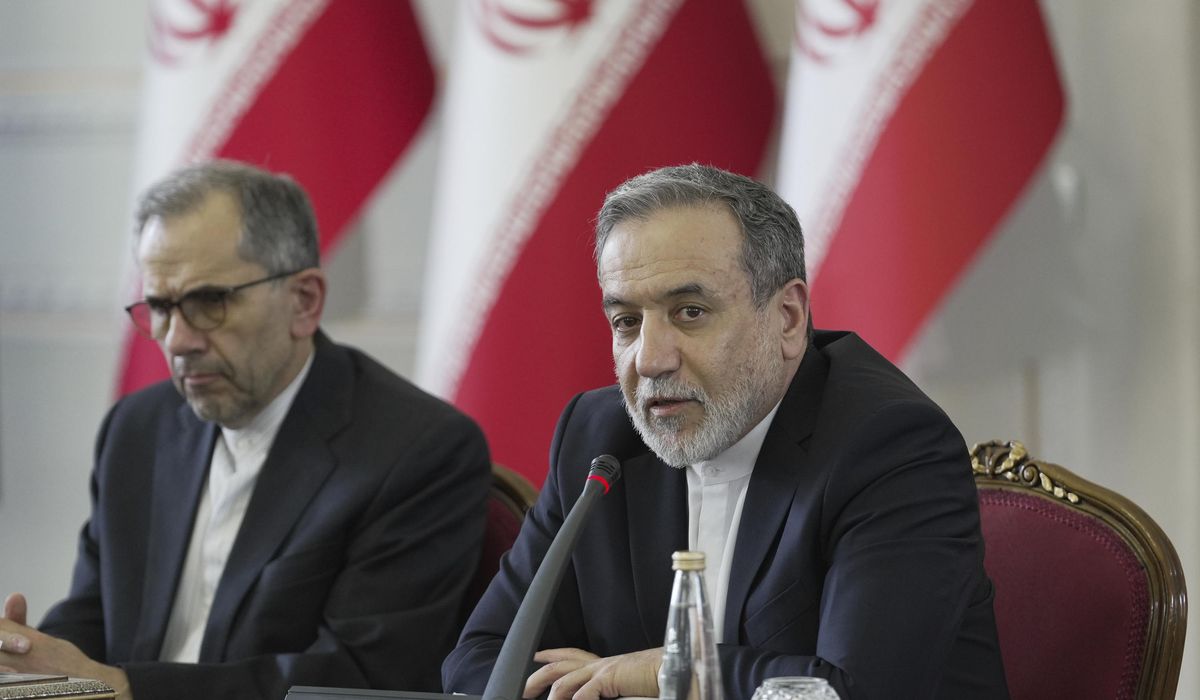


China and Russia on Monday jointly condemned the effort by European leaders to reimpose U.N.-backed sanctions on Iran, calling the move illegal.
China and Russia, both permanent members of the U.N. Security Council, penned a joint statement with Iran this week calling the decision by European leaders to trigger the “snapback” mechanism of the Joint Comprehensive Plan of Action “legally and procedurally flawed.”
The letter invokes similar claims made by Iranian officials, arguing that European leaders have no legal right to trigger the mechanism because they themselves have not been upholding the terms of the JCPOA.
Still, Russia and China, both signatories of the JCPOA, have few options to block the new sanctions. Russia had disseminated a draft proposal last month that would allow for a six-month delay in the reinstatement of sanctions.
The JCPOA, also known as the Iran nuclear deal, was signed by the U.S., China, France, Germany, Russia and the United Kingdom in 2015. The deal provided Iran with sanctions relief in exchange for limits to its uranium enrichment program, including a stockpile cap of 300 kilograms of enriched uranium.
The snapback mechanism, or Resolution 2231, allows any signatory to reimpose sanctions on Iran if the Islamic republic is found to be “in significant non-performance” of its duties.
President Trump withdrew the U.S. from the JCPOA during his first administration in 2018. Following U.S. withdrawal, Iran rapidly increased its uranium enrichment, with watchdogs reporting that Tehran was only steps away from weapons-grade enrichment.
Iranian Foreign Minister Abbas Araghchi praised the efforts of Russia and China in a lengthy X post on Monday, stressing that Europe is creating a dangerous environment.
“The primary function of the Security Council is to act on behalf of the international community to maintain peace and security. What the E3 proposes betrays this mission, turning the Council into an instrument of coercion rather than a guardian of global stability,” Mr. Araghchi posted. “The urgent task before us is to restore international law and build upon it to give diplomacy the ground it needs to succeed.”
Leaders from France, Germany and the United Kingdom triggered the mechanism last week, after accusing Iran of failing to provide adequate transparency on its nuclear program. The U.N.-backed sanctions, which will include an arms embargo, asset seizures and travel restrictions, will not take effect for another 30 days.
The European leaders, collectively known as the E3, had promised to reinstate sanctions under the snapback mechanism at the end of August, following Iran’s decision to halt cooperation with the International Atomic Energy Agency. The two sides have met twice since the ultimatum was issued, once in Istanbul and again in Geneva; neither meeting has resulted in a deal.
• Vaughn Cockayne can be reached at vcockayne@washingtontimes.com.
